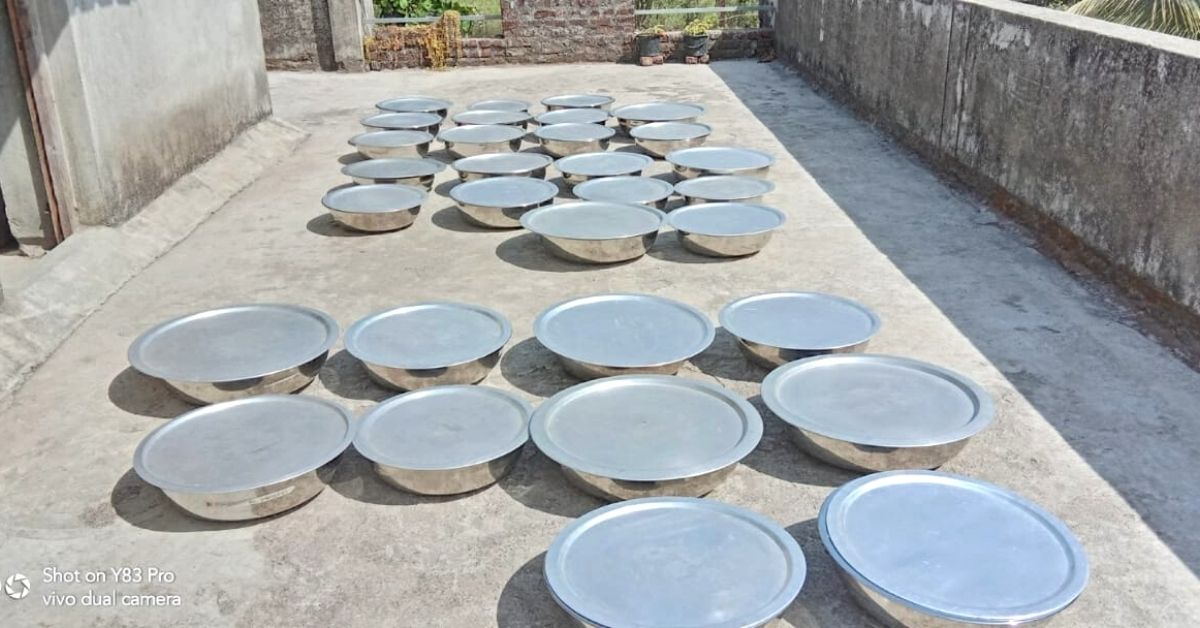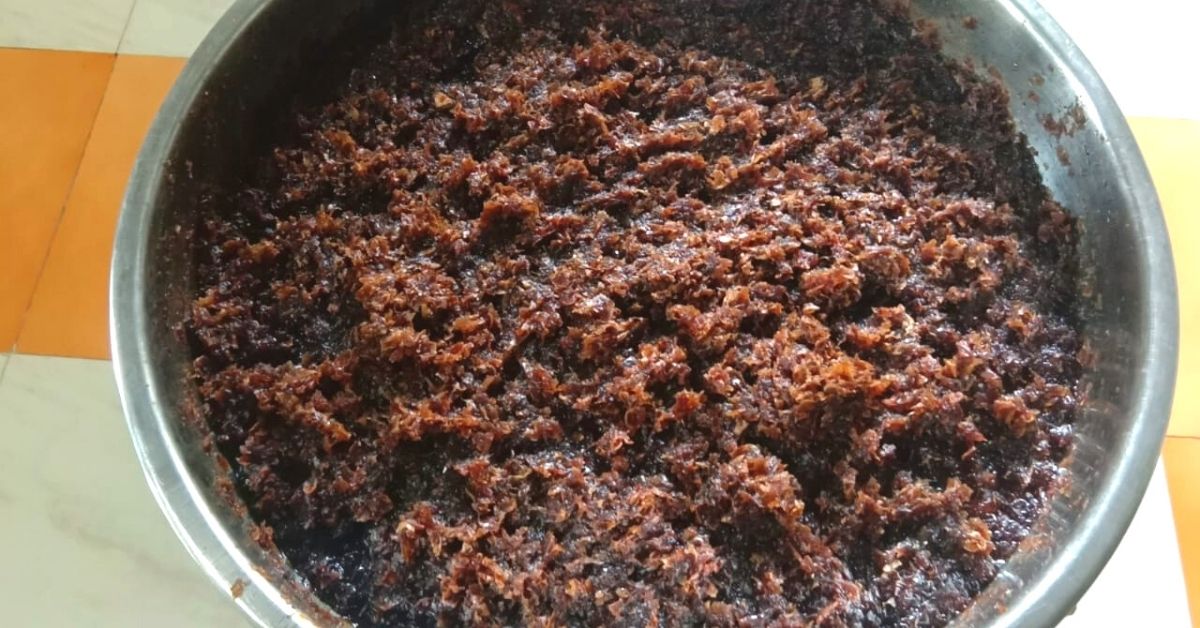In 2013, Shamshad Zakir Hussain Mulla (44) and her husband Zakir (45) were facing a crisis. The traditional farmers, from Navsari in Gujarat, were being asked to leave their home by Shamshad’s in-laws due to a family misunderstanding. This meant the couple and their children had to move into the half-acre ancestral land that Zakir owned. The family built a house on a patch of the land, and used the remaining portion to begin farming.
Over the next few years, they came to realise that conventional farming methods were not fetching adequate income for the six-member family to survive. Shamshad and Zakir began thinking of other ways. “We were traditional farmers who grew vegetables and sold them in the market. But at times, we ended up buying vegetables because the produce was so little. We needed a way out,” Zakir says.
Shamshad had been producing and selling gulkand, made from rose petals. “We had two plants of the desi variety of rose, and I’d been making edible items for my children since 2014. I asked Zakir if we could turn it into a business,” she says.
The couple turned to horticulture and began processing the rose into edible items. They make gulkand, rose water, and face packs from the rose, which is grown using organic methods. Their income has since increased, and they earn over Rs 25,000 a month.
A step into the unknown

Shamshad says she was unsure if the homemade product held much commercial value. “We didn’t know the actual method, nor its scientific health benefits. Zakir approached a family doctor, who said gulkand helps treat stomach inflammation, soreness, ulcers and digestion problems, and is good for pregnant women,” she says, adding that Shamshad thought if the product was successful, it could benefit the health of the masses.
Zakir approached the Krishi Vigyan Kendra and sought advice from the agriculture department. “I took a sample of the gulkand to the officer-in-charge and asked if it had the potential to be accepted in the market. The officer felt positively about it, and suggested we undergo training with the farmer’s department in growing rose plants organically, making compost ,and producing gulkand using natural methods. He also agreed to market the product through the government department on our behalf,” he adds.
The couple also learned that no other farmer was producing gulkand in the region, which would make it a unique prospect and thus increase the possibility of success. They underwent a month-long training programme to learn the techniques and sought the necessary certifications.
Through sincere efforts

Zakir and Shamshad bought 1,000 rose plants of desi varieties and started growing them. “Rose plants demand less water, but regular pruning and care. It took more efforts to maintain these plants, as compared to vegetables. There was no produce in the first year as we focussed on growing the plants until they matured,” he adds.
Zakir says that desi varieties have smaller leaves, but produce a larger quantity of roses. The couple solar dried the rose petals and used khadi shakkar or misri (sugar candy) to make the gulkand. “It is much healthier than normal sugar. We also make it in steel vessels and avoid aluminium for health reasons. It takes about three months to prepare a 1 kilo batch organically – including the harvesting, solar drying, mixing with sugar candy, and leaving it to form gulkand naturally. We packaged it by name Organic Shama Gulkand and gave it to the Krishi Vigyan Kendra to sell at Rs 400 a kilo, and it became a hit,” he adds.
Gaurang Bhagat from Mumbai, associated with NGOs, says he tried the product and liked it. “We are also trying to collaborate with NGOs and market the organic product,” he says.
Zakir says, “We have also started growing aloe vera and other medicinal plants in the gaps between these rose plants. The plan is to make hair oil out of them,” he adds.
Shamshad says she is glad to have taken the risk. “I was confident we would be successful, provided we put in all the hard work. The business has become profitable, but true happiness comes when customers call and praise us,” she adds.
To order gulkand, Zakir can be contacted on 9904232588.
To read the story in Gujarati, click here.
Edited by Divya Sethu
No comments:
Post a Comment